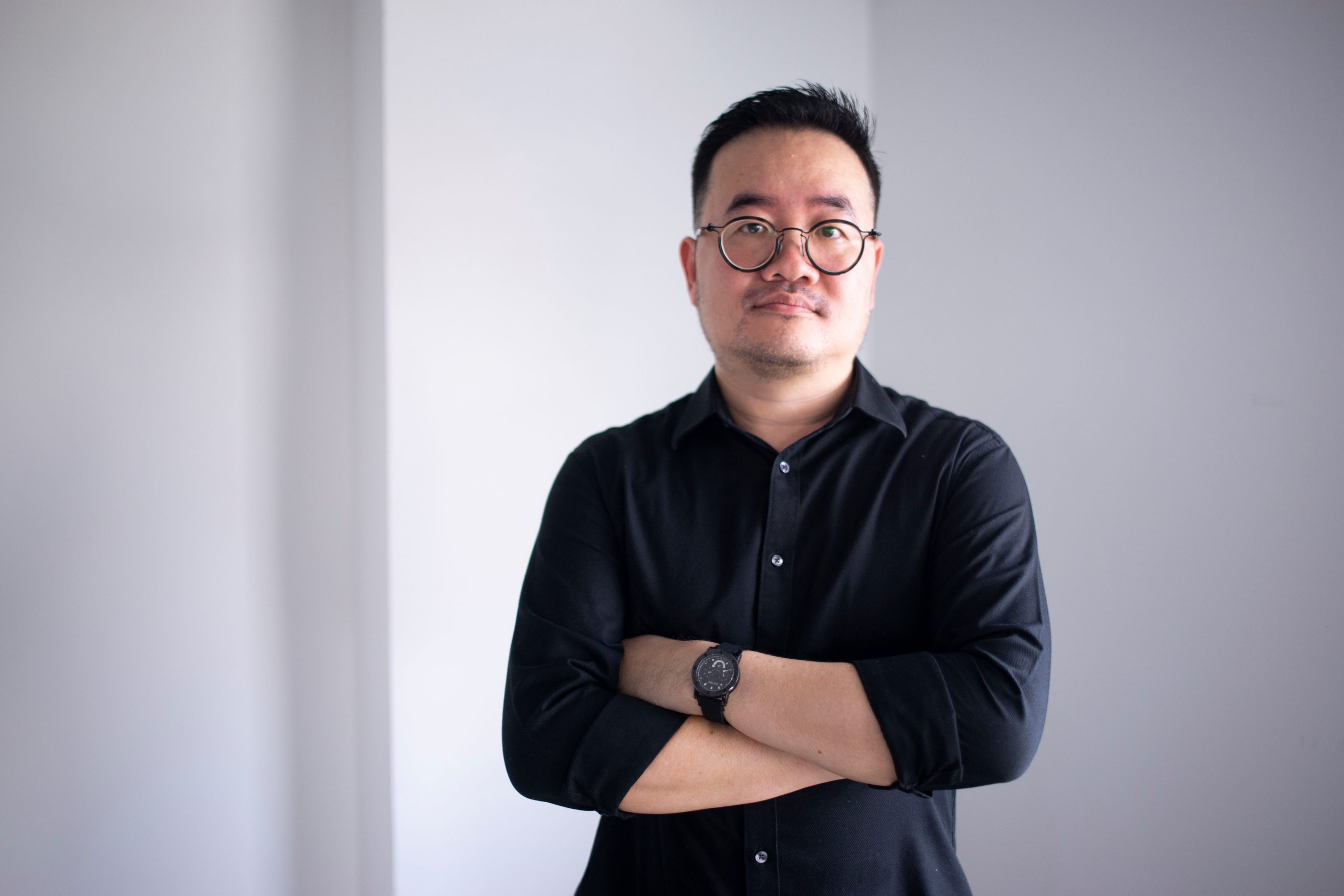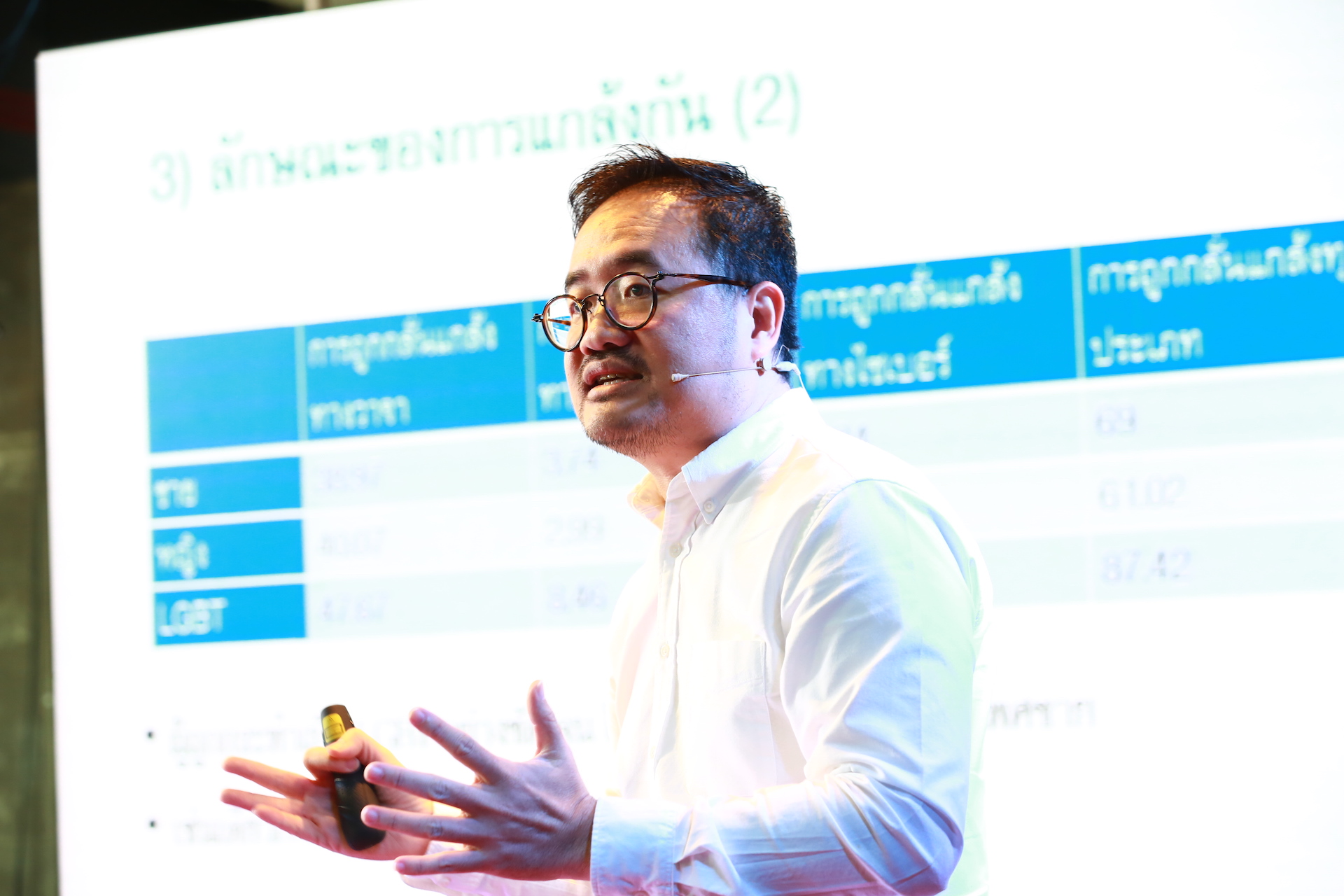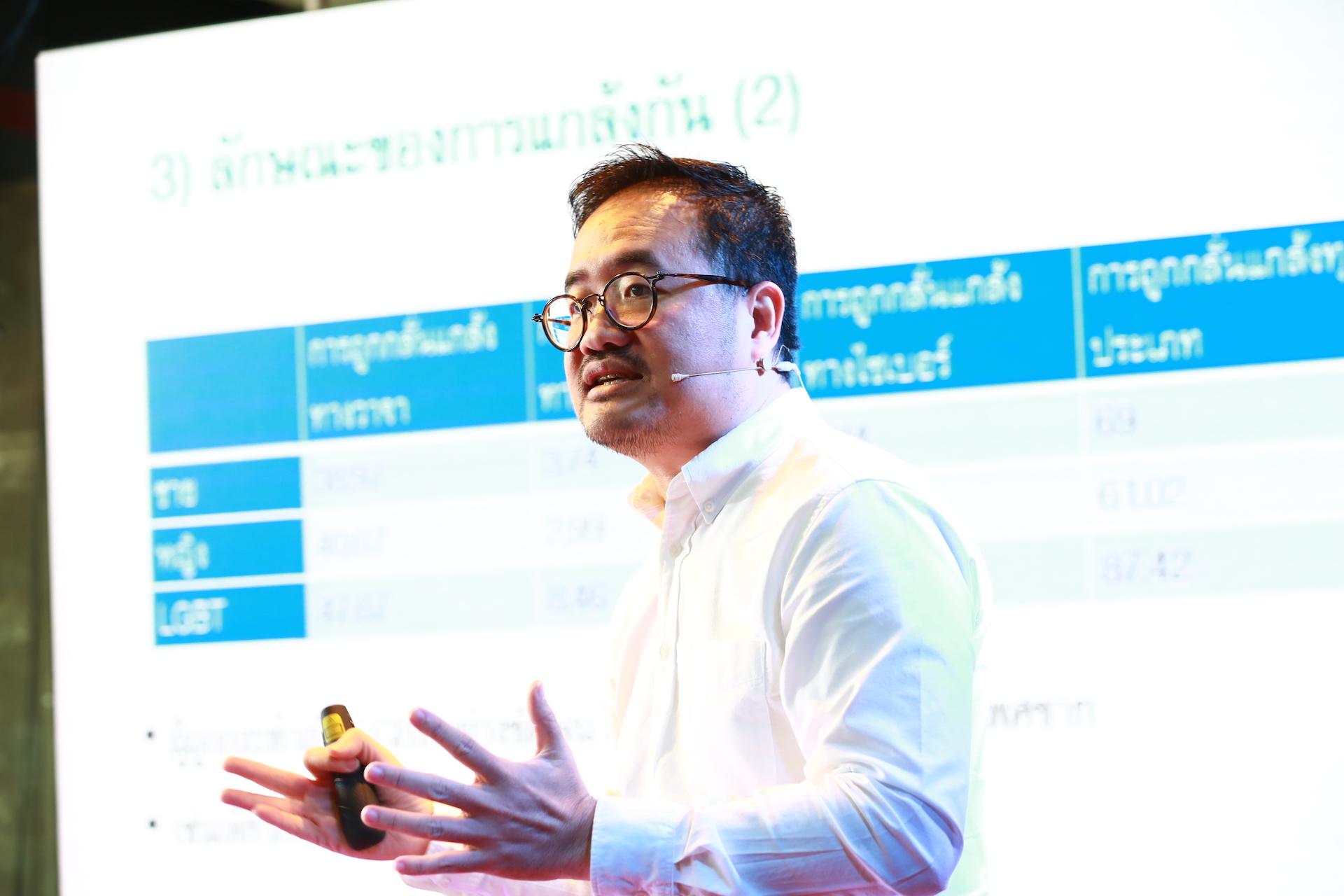During the past years, discussions on behavioral economics have been growing among economic and social policymakers in Thailand. Their debates have raised questions as to whether traditional mindsets are still practical for policymaking in today’s context. Case in point: policies that try to promote savings among Thais. They have hardly achieved any success because of cultural factors, and often Thais get old before they can get rich.
To support its fight against cyberbullying, dtac collaborated with Chulalongkorn University’s (CU) Faculty of Economics to use behavioral economics to better design practical policies and solutions to this issue. Together, dtac and Chulalongkorn University worked on a framework to engage Thailand’s youth around Safe Internet projects that could truly change behaviors.

To better understand how behavioral economics can promote healthier online spaces, dtacblog spoke to Asst. Prof. Thanee Chaiwat, president of CU’s Program in Political Economy and director of the Chulalongkorn Experimental Economics Center,
“Focusing on motivators including emotions and experiences, behavioral economics recognize that humans are not always rational,” said Prof. Thanee. “If motivators are well-designed, humans can be expected to give positive responses—similarly to a free market system. Behavioral economics can address cyberbullying too, as it recognizes the cultural complexity behind the problem.”
Prof. Thanee was struggling financially as a teenager. His difficult childhood motivated him to aim high and dream of “changing the social structure.” Guided by his dream, he has chosen the path of university lecturer because this teaching profession allows him to develop people and share his vision.
While pursuing a Master of Economics at Chulalongkorn University, he studied under Thailand’s top political economist Prof. Pasuk Phongpaichit. His mentor addressed topics firmly grounded in reality: corruption, gambling, taxi motorcyclists, the sex industry, and narcotics. Not only these topics expanded Prof. Thanee’s understanding of society, but they also spurred his excitement in the unexplored aspects of economic science.
“These topics are about Thailand’s major economic activities. People are related to or use services from these economic sectors. Yet, no one openly talks about them. They are a shadow economy, which is not fully integrated into the official economic system,” said Prof. Thanee.

Behavioral Economics
Thais often choose to be educated abroad in countries with well-developed economies. They graduate from leading universities in the United States, Britain or Australia. Yet, Prof. Thanee argues the perspectives from those countries may not work for Thailand in all aspects. Hence, Prof. Thanee specifically chose to pursue his doctorate degree in Italy. His choice took into account Italy’s many similarities with Thailand.
Prof. Thanee explained that while Italy is a developed nation, its structure is like Thailand in many ways. The Italian economy is heavily dependent on tourism, the automotive industry, textile industry, and agriculture. Socially speaking, conformity, the primacy of family, and a strong cultural identity are dominant. In the political domain, the influence of mafia and corruption are rampant. Yet, Italy is on par with mature economies in many aspects; and is home to giants like Fiat, Prada and Generali, which are known worldwide.
“In Europe, culture is a big thing and cultural studies are very systematic. But in Thailand, systematic studies on culture are still lacking. However, cultural studies would give Thailand a clearer picture of our systems and a sharper focus on the needs of the majority. Moreover, culture allows us to deal with conflict. It is natural for human society to have conflicts. What we need is a system to live with those conflicts,” Prof. Thanee said.

Thai Culture under Microscope
Prof. Thanee sees Thai culture as full of paradoxes: “While Thais extoll the virtues of frugality, they look up to the rich. While Thai society encourages children to have the courage to express themselves, it also expects them to be obedient to adults. In Thai society, people are expected to try their best. Yet, the society is full of envy and badmouthing. All these contrasts mean several sets of value coexist despite being contradictory. Surprisingly, Thais have coexisted relatively well despite this paradox.”
The professor is motivated by more than simple curiosity. He believes a deeper understanding of Thai culture can pave way for the government’s formulation of more efficient policies.
“If we thoroughly understand Thai culture, we will be able to redesign Thailand as a better society. Without that understanding, only Western cultural systems are adopted. And they often fail. For example, efforts to get Thais to save up for their retirement have ignored that many parents prefer to invest in their children. Paying for their children’s education, they hope their children will support them during their retirement years,” he said.
Tend to Cultural Roots
Prof. Thanee’s first collaboration with dtac was Shift Happens 2018, a series of talks which explored the roots of corruption in society. Conformity and impunity were identified as powerful agents in enabling social injustice. And the conformity-impunity duo are also behind bullying. Bullies violate the rights of their victims but they are not held accountable for their actions. When their actions are repeated, their place in Thai culture grows stronger.

“If we want to see Thailand get better in the long run, we must focus on building the right culture among children. Children should be empowered and encouraged to change society. Doing this is easier than trying to change the mindset of the older generation,” Prof. Thanee said.
He believes solutions should come from children themselves rather than teachers. If teachers are given more power to tackle bullying, the old power structure will just be strengthened. In Thanee’s view, to solve bullying at its root cause, Thai society should promote respect for diversity. This is the concept behind dtac’s recent Jam Ideation, a session for youth to brainstorm ideas to tackle bullying.
A New Culture
The acceleration of change brought about by digital technology has been further intensified with COVID-19. The future challenge to achieve the symbiosis of mankind and technology has never seemed so difficult. And just as the tech savvy move ahead, people without technological access are being left further behind. To close the digital gap, Thailand is at a critical juncture.
“Thai society thinks too little about creating a new culture for the digital age,” Prof. Thanee said, “In the future, society will grow even more complex. We should rethink our culture both vertically and horizontally. Vertical relationships between the state and people should be based on institutional economics and built on trust. For the horizontal part, we should promote diversity and justice. If Thai society does not rethink its systems, social conflicts will grow for sure.”

